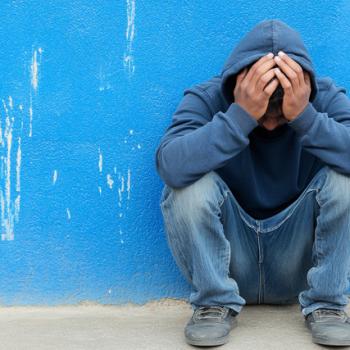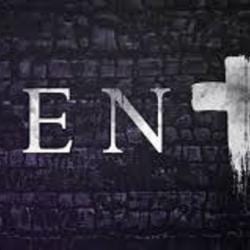Our society has largely fragmented into smaller, more homogeneous groups, and our chance to meet, interact with, and learn from, someone radically different from ourselves may be rare or nonexistent. That's why I value my Facebook feed, made up, as it is, of people I've known my whole life, readers, and fellow theologians from around the world, of conservatives and liberals, professional Christians and devout atheists. When I pay attention to the threads of this diverse conversation, I get to step out of my gated community, hear from people who are not exactly like me, and wrestle with why I hold my own thoughts and opinions.
But meeting someone who differs from you may still be the best way to learn something new. My friends the Powells just got back from NYC, and my friend Lizzie told me about the interaction between 8-year-old Walker and their Pakistani cab driver. Walker had it in his head that eating a hot dog from a street vendor was an essential New York experience, and so he asked their driver if he liked hot dogs.
"I cannot eat hot dogs because of my religion," the driver said, and he went on to explain to Walker that his food must be prepared in a special way, according to the dictates of his faith, "and hot dogs probably aren't." In the course of that cab ride, Walker heard from this gentle man about his childhood in Pakistan and his loving grandfather, who still lives in Pakistan, and he got to encounter a Muslim not as a boogieman or an enemy, but in conversation.
It's still one of the best ways to learn from others who they actually are—talking to them.
Get Out of the Echo Chamber
A byproduct of our gated communities is that we tend to hear over and over again what we already believe to be true. And if our primary news source tells us only what we already believe, it is doing us a disservice, and this is as true with Fox News as it is with MSNBC, as true in some ways whether you listen to Glenn Beck or Rachel Maddow. I know you can argue that Maddow is a journalist and Beck an entertainer, or that MSNBC has more stringent journalistic requirements than Fox, and I would be sympathetic to those arguments. But the truth is that if either is your sole source of news (and this is also true of TV and radio call-in shows and left- or right-wing blogs), you are limited in what you know and what you hear to what you want to know and hear.
I happen to think most of what Keith Olbermann says is true. But how do I know it's true? Because I get out of the echo chamber and read.
In England, during my writing residencies at the Gladstone Library, I look forward to reading the papers at the end of the day. The Library gets a number of papers; there's The Guardian, The Independent, The Times, The Telegraph. Each has its own editorial slant, its own particular focus. The Guardian, my favorite, is a lefty investigative newspaper; The Times is (or was) the paper of the Establishment; The Independent proudly flaunts its independence from any political party.
Each covers stories in a slightly different way, with a different slant, and often one helps me understand a situation in ways the others don't. If I read only The Guardian, although it is a great paper, I would miss out on other approaches and I'd fail to see what the larger debate might be about.
Read, Watch, and Listen
Likewise it's important to employ different forms of media. Although I'm a professional writer working in the fields of religion, politics, and culture, and thus I need to be a little better informed than your average bear, I've always believed it was necessary for Americans to be better informed than they are. How else can we know what to think, how to vote, what causes to support?
So I'll offer this list of news sources I consult—and I hope comments might add or debate these publications and media sources—that might offer a wealth of approaches to the news and issues of the day. I think it's important first to read news daily, at least. For me, that means consulting great newspapers: The Guardian, The Washington Post, The New York Times. I read them on the web, I don't read them in their entirety, and I do tend to focus on issues I'm following, but I always get sidetracked, and read more than I intended, and that's probably a good thing.
Since I don't watch TV news daily, I do tend to listen to the radio. In the U.S., I listen to National Public Radio, and BBC Radio if it's available. In each of these categories, an international news source helps to give a different perspective on issues. Network news and CNN might round out your news viewing, and shows like Fresh Air, The Bob Edwards Show, or Religion and Ethics Weekly might add a tighter focus on an issue or newsmaker.





